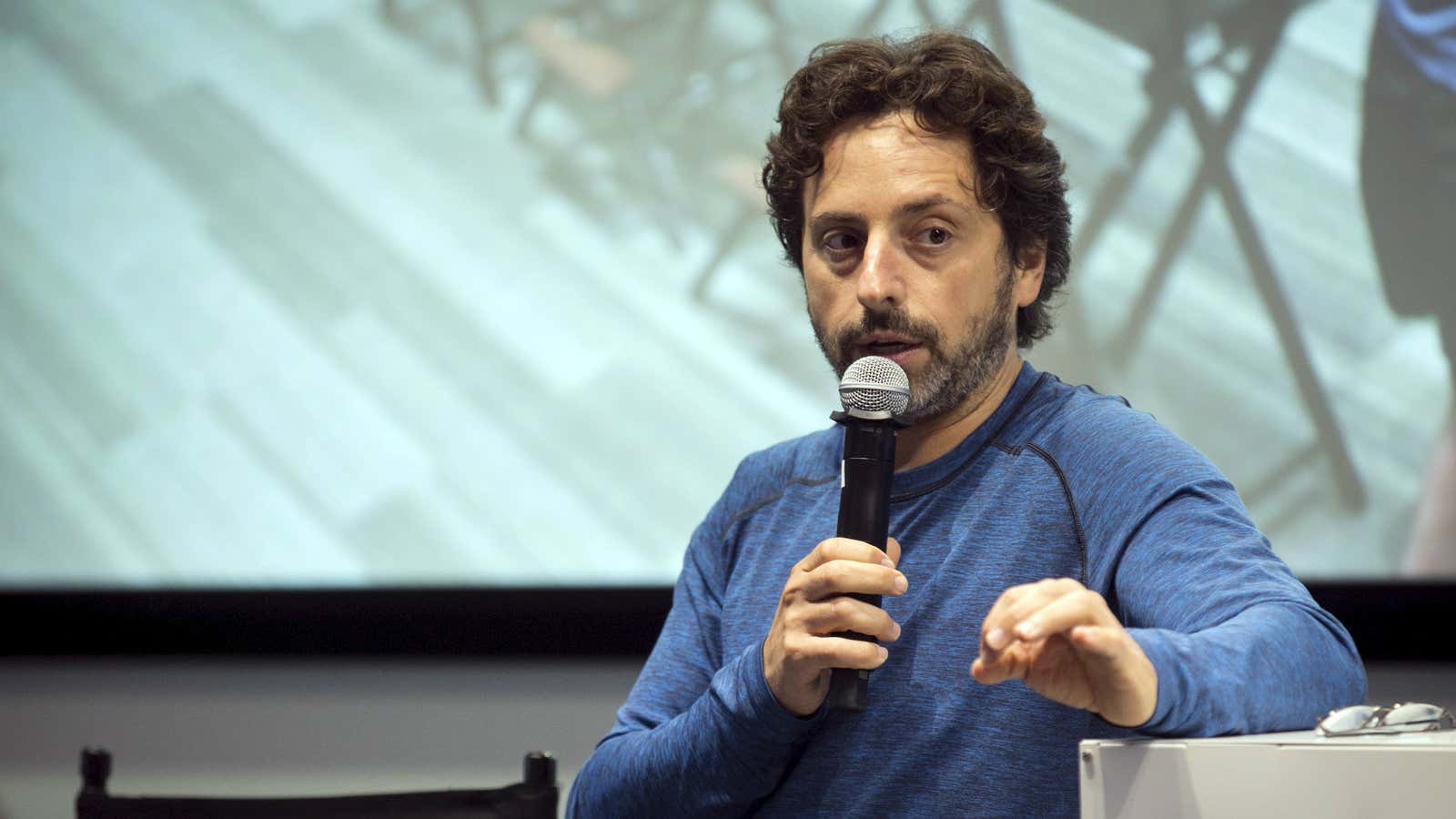Over the past week, news surfaced revealing Google’s plans to launch a search engine, a news app, and cloud services in mainland China. The tech giant has largely been absent from the country since 2010, when it shut down its search engine due to concerns about censorship and cyberattacks.
Re-launching a search tool and other products would inevitably force it to comply with China’s censorship regime, which entails blocking access to information the government considers too politically sensitive (whether that’s the history of the Tiananmen massacre or the latest #MeToo scandal in China). And that would place it at odds with Sergey Brin—one of Google’s two co-founders and the voice of caution during the company’s first foray into China.
As recounted in Steven Levy’s book In the Plex, while Google executives like Eric Schmidt were confident that launching a censored search engine in China would be worth the political cost, Brin was more ambivalent. He had grown up the child of two Russian Jews who fled to the US amid rampant anti-Semitism in the Soviet Union. Andrew McLaughlin, Google’s former director of public policy, said that Brin’s “background as a refugee made him inherently more suspicious of doing business in an environment like that.”
Brin displayed some of this ambivalence in his comments to media around the time of Google’s search engine launch in China in 2006. Speaking to the New York Times, the engineer explained that benefits of increasing access to information in China outweighed the potential costs of complying with orders to censor search results. Entering China, he told the paper, “wasn’t as much a business decision as a decision about getting people information. And we decided in the end that we should make this compromise.”
Four years later, Google effectively shuttered its mainland-China facing search engine. At the time, Brin stated that a hacking attack against Chinese activists was the primary motivation for its decision, but he also acknowledged that his upbringing informed the move as well. “Having come from a totalitarian country, the Soviet Union, and having seen the hardships that my family endured–both while there and trying to leave—I certainly am particularly sensitive to the stifling of individual liberties,” he told Der Spiegel not long after the pullback.
Even after Google’s China debacle, Brin has issued warnings about the threats that the internet and new technologies can pose on civil liberties. In 2012, on his Google Plus account, he wrote “the primary threat by far to internet freedom is government filtering of political dissent.” But Brin’s influence at Google has been minimal since he assumed the role of president of Alphabet, Google’s parent company, in 2015.
Sundar Pichai, who became Google’s CEO in 2015, hasn’t commented much on how its re-entry into China might square with its commitment to information access and an open internet. He does, however, appear to be a key driver in the push. Back in 2016, he hinted at a re-entry into mainland China for the search giant. “I care about servicing users globally in every corner. Google is for everyone,” he told Recode’s Walt Mossberg in an interview. “We want to be in China serving Chinese users.”
Since Pichai took over, Google has made a number of overtures to China, including plans for an AI research lab in Beijing. Pichai last year also attended an annual internet conference China hosts, as did Apple’s Tim Cook, a rare confluence of top US tech leadership at the controversial tech event.
It’s possible that much as Brin’s background led to his ambivalence toward China, Pichai’s own childhood plays a part in his enthusiasm to be present there. Pichai grew up in India, which has a more limited approach to free speech rights, and where many admire the concrete economic gains China has delivered for its people. Pichai also has a fervent belief in the power of technology to better lives, recalling in an interview with the Guardian moments from his lower middle-class childhood in which he had “viscerally seen how technology can make a difference, and I still feel it. I feel the optimism and energy, and the moral imperative to accelerate that progress.”
